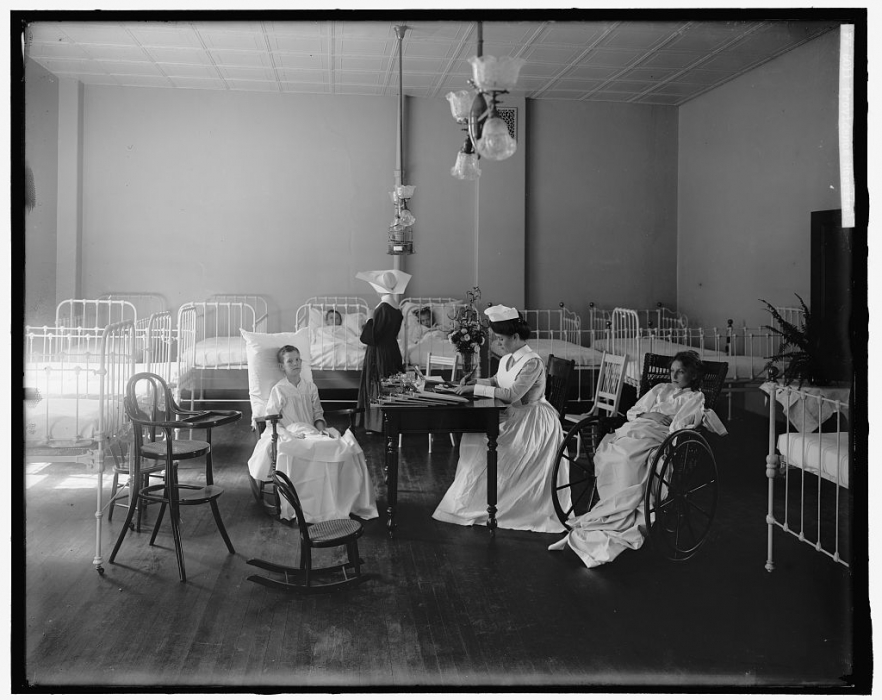In Bradfield v. Roberts, 175 U.S. 291 (1899), the first case to challenge a federal expenditure as a violation of the establishment clause, the Supreme Court ruled that the federal government’s agreement to provide funding to a Catholic hospital in exchange for care for indigents did not violate the First Amendment.
Bradfield challenged use of federal funds to build Catholic hospital
During the Civil War, Congress had provided construction money to build Providence Hospital in Washington, D.C., and Joseph Bradfield, a citizen, resident, and taxpayer, had challenged the continued funding as a violation of the separation of church and state.
Court said religious affiliation of the hospital was ‘immaterial’
Justice Rufus W. Peckham Jr., writing for the unanimous Court, passed over possible difficulties regarding the standing of the parties.
Like the appeals court, Peckham favorably cited the appellate court decision finding that the hospital, though administered by Catholic nuns, was “an ordinary private corporation whose rights are determinable by the law of the land, and the religious opinions of whose members are not subjects of inquiry.”
Peckham thought the religious avocations and affiliations of the staff and corporate board members were “wholly immaterial.”
Case established precedent of treating government aid to social services differently
This case established the precedent, which still largely applies today, of treating government aid to religiously affiliated hospitals and social services organizations differently from aid to schools and other institutions.
John Vile is professor of political science and dean of the Honors College at Middle Tennessee State University. He is co-editor of the Encyclopedia of the First Amendment. This article was originally published in 2009.

